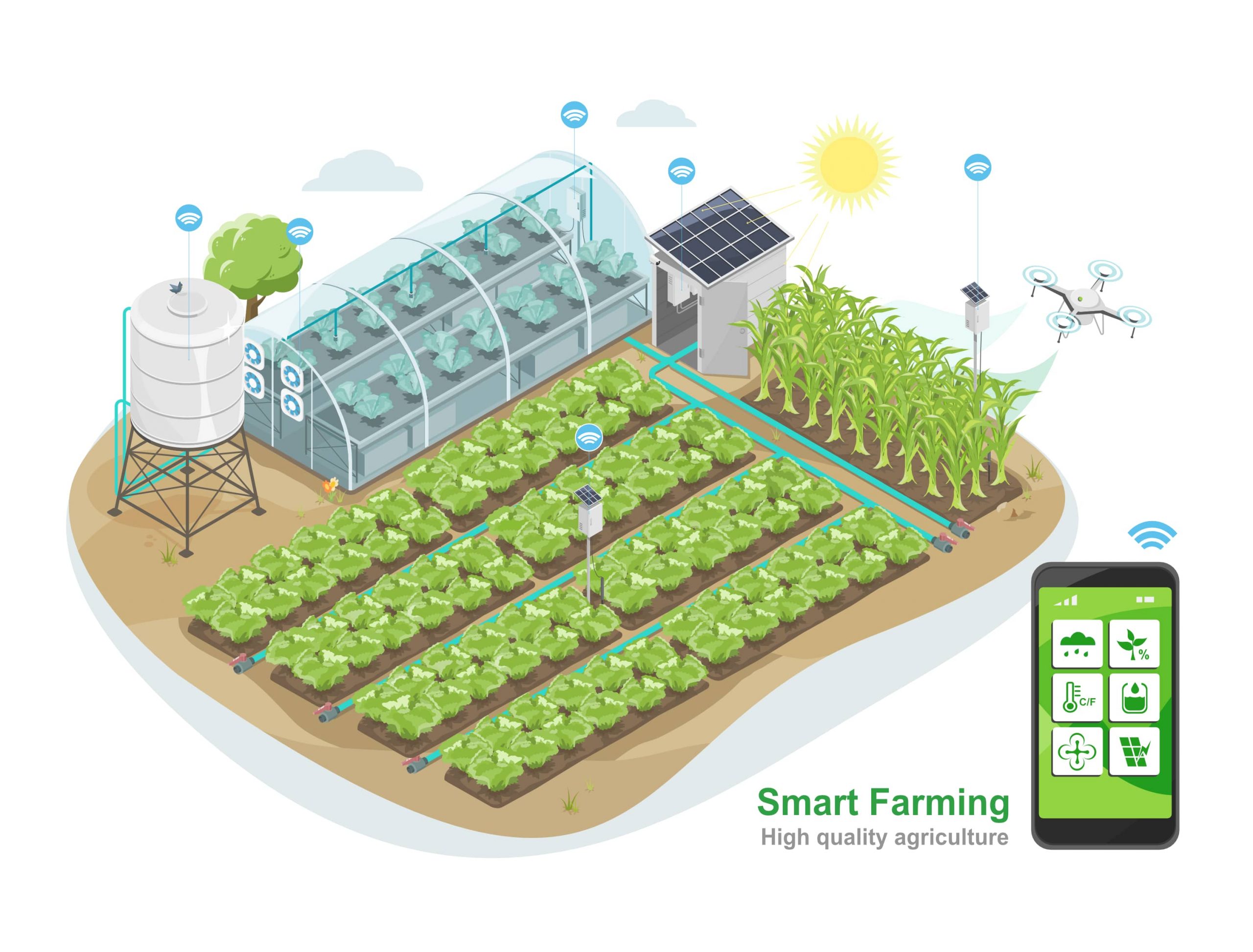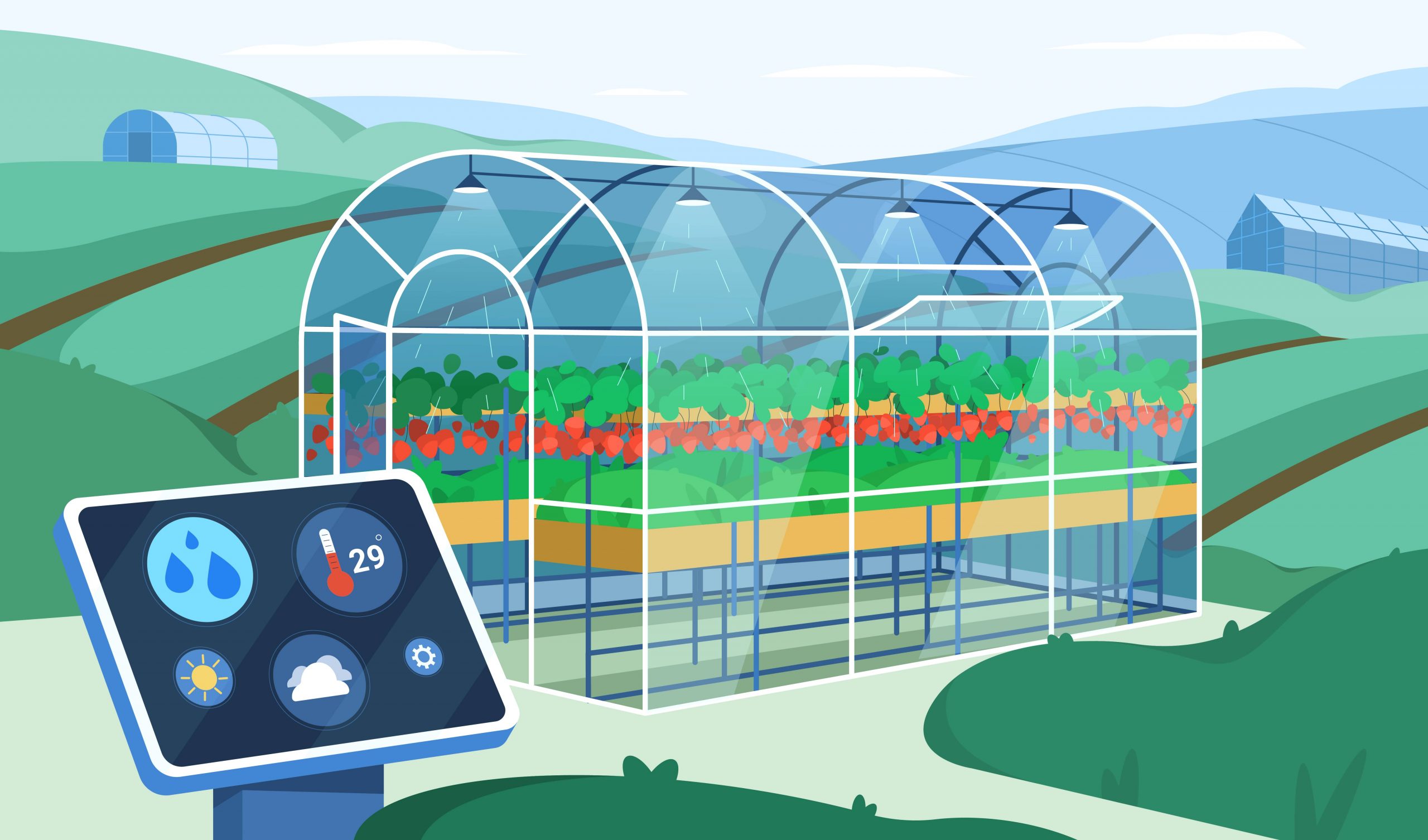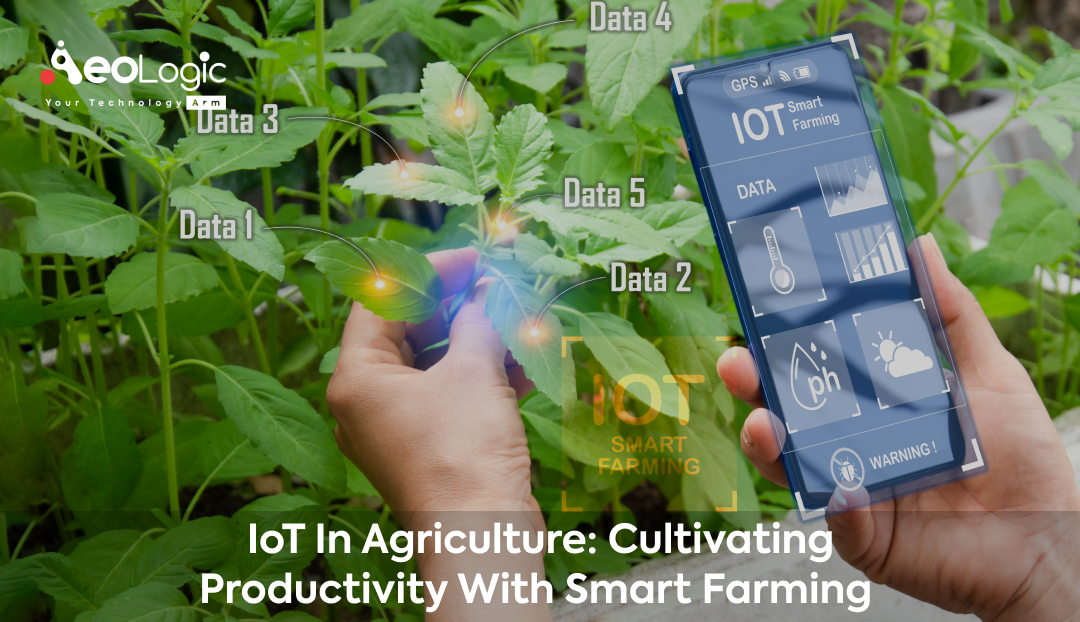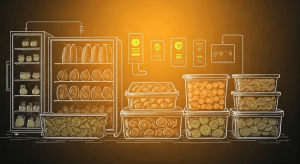In recent years, IoT in Agriculture has emerged as a groundbreaking tool, revolutionizing the way we approach farming. By integrating advanced technologies into everyday agricultural practices, IoT in Agriculture is not just a buzzword; it’s a new era of efficient and sustainable farming. You, the reader, are about to embark on a journey through this transformative field, exploring how IoT reshapes the agricultural landscape.
The Rise of Smart Farming
The phrase “IoT in Agriculture” represents farming technology that adopts the Internet of Things. The sensors, drones, and other equipment that are capable of connecting to the Internet – these devices allied with each other can provide optimum control of agricultural activities. A significant increase in the level of efficiency and productivity. For example, IoT-connected sensors can be used to measure the levels of soil moisture wherein the farmer can only irrigate when required to ensure that water is not wasted while yet achieving maximum crop yield.
The Impact of IoT on Agricultural Productivity

The Internet of Things has been shown indeed to play an essential role in the microeconomy of many farms and it is firmly established as one that cannot be neglected only. Through sensors placed in farms, farmers can measure different conditions such as the environment of moisture, crop health, and weather through IoT-based solutions. This real-time, data-gathering approach translates into effective decision-making provided the relevant instruments are furnished with adequate resources including water and fertilizers ensuring improved yields.
By 2050 it is estimated that IoT applications in agriculture will increase productivity by at least 70%, as countries strive to meet the prospects of the millennium development goals (Sugunan K. and Dwijesh N.K, 2 Application of Internet Of Things in Agriculture).
Also Read: The Impact of IoT on the Retail Business Today
Transforming Farm Management with IoT
The incorporation of IoT in agriculture simplifies farm management. Smart farming technologies enable farmers to remotely control their equipment and automate numerous farming operations. This not only reduces the labor required but also minimizes human errors. IoT systems can track the health and location of livestock, monitor storage conditions for crops, and even predict future farming conditions, making farm management more efficient and less cumbersome.
IoT-Driven Precision Agriculture
Precision agriculture, a direct offshoot of IoT in agriculture, tailors farming practices to the needs of individual plants or animals. This approach minimizes waste and maximizes productivity. For instance, IoT sensors can detect nutrient deficiencies in the soil and adjust the fertilizer application accordingly. This precision leads to healthier crops, reduced environmental impact, and increased profitability for farmers.
Enhancing Sustainability Through IoT
IoT in agricultural sector is a very important factor, which has entrusted the whole of modern agriculture with sustainability. IoT technologies facilitate the monitoring of water and help reduce the amount of water, fertilizers, and pesticides used for short-grade farming hence creates a more organic environment. Data managed by IoT devices also enables one to comprehend and counter the effects of climate change in agriculture ensuring sustainability for ages.
Also Read: Optimizing Business Operations with IoT Solutions
Examples of Internet of Things applications in agriculture

IoT sensors for agriculture come in a wide variety, and there are also numerous uses of IoT in agriculture in general, including the following:
1) Monitoring of Climate
It is likely that weather stations, which include a number of different smart farming sensors, are the most common technological devices for agriculture. Situated in different parts of the field, they gather a variety of data from the surrounding environment and then upload it to the cloud. The measurements that are provided can be utilized to create a map of the climate conditions, select the crops that are suitable for the environment, and take the necessary steps to enhance their capacity (also known as precision farming).
Devices such as allMETEO, Smart Elements, and Pycno are examples of Internet of Things devices that are used in agriculture.
2) Drones used in Agriculture
The utilization of agricultural drones in smart farming techniques is possibly one of the most promising developments in the field of agritechnology. Drones, which are often referred to as unmanned aerial vehicles (UAVs), are more sophisticated than airplanes and satellites when it comes to gathering information about agriculture. In addition to their skills in surveillance, drones are also capable of doing a great range of jobs that were previously performed by humans. These duties include planting crops, combating pests and illnesses, spraying farms, monitoring crops, and many others.
3) Complete farm management systems
On the other hand, the so-called farm production management systems are an example of a more complicated approach to Internet of Things products in the agricultural sector. These systems typically consist of a number of Internet of Things (IoT) devices and sensors for agriculture that are put on the premises, in addition to a robust dashboard that is equipped with analytical capabilities and built-in accounting and reporting functions.
You will be able to streamline the majority of the business activities and take use of the remote farm monitoring capabilities offered by this.
Some of the most significant prospects include vehicle tracking (or even automation), storage management, logistics, and other areas, in addition to the use cases that have been described for the Internet of Things in agriculture.
4) Animal Management and Cattle Monitoring
There are Internet of Things agriculture sensors that may be attached to animals on a farm in order to monitor their health and log their performance. These sensors are similar to crop monitoring software. Tracking and monitoring livestock allows for the collection of information regarding the health, well-being, and physical location of the animals.
By way of illustration, these sensors have the capability to identify unwell animals, allowing farmers to segregate them from the herd in order to prevent diseases from spreading. In addition, the use of drones for real-time tracking of cattle helps farmers cut the costs associated with personnel. IoT devices for pet care are analogous to this in their operation.
Also Read: Top IoT Security Challenges and Solutions
5) Crop Management Devices
In the realm of agriculture, crop management devices are yet another form of Internet of Things product and an additional component of precision farming. They should be deployed in the field in the same manner as weather stations in order to collect data that is relevant to crop farming. This data should include elements such as temperature and precipitation, as well as leaf water potential and general crop health.
Therefore, you are able to monitor the progress of your crop and identify any irregularities in order to efficiently prevent any diseases or pests that could potentially impair your output.
Challenges and Opportunities
While IoT in agriculture presents numerous opportunities, it also comes with its set of challenges. The high initial investment in IoT technologies can be a barrier for small-scale farmers. Additionally, the need for technical expertise to operate and maintain these systems can be daunting. However, the benefits of increased productivity and sustainability present a compelling case for the widespread adoption of IoT in agriculture.
Protection of Personal Information and Data: The collection and transmission of sensitive agricultural data may give rise to concerns over the privacy and security of the data. Protecting this information is absolutely necessary for farmers and the partners they work with.
The ability to connect: Dependable Internet access is lacking in many rural regions, which might be a barrier to the implementation of Internet of Things technologies in smart agriculture. Increasing the coverage of the network is necessary in order to communicate with all farmers.
The cost of putting the plan into action: An obstacle that may be encountered by certain farmers is the initial cost of deploying Internet of Things technology, particularly for those farmers who have low finances. For adoption to be easier, it is possible that the government may need to provide support and subsidies.
Education and Training: In order to make successful use of Internet of Things technologies, farmers require the knowledge and skills necessary. Programs of education and training are required in order to guarantee that farmers are able to fully benefit from the implementation of intelligent agricultural techniques.
Regulatory Compliance: The Internet of Things (IoT) in agriculture must comply with legal requirements, particularly those pertaining to the protection of data and the standards for food safety.
Boost your business with our IoT Solutions
The Future of Farming with IoT
The future of IoT in agriculture is incredibly promising. With advancements in technology, IoT systems are becoming more affordable and user-friendly, making them accessible to a broader range of farmers. The integration of IoT with other technologies like artificial intelligence and machine learning is poised to further revolutionize agriculture, making it more efficient, productive, and sustainable.
Final Words: Cultivating the Future with IoT in Agriculture
IoT in agriculture is not just a trend but simply an essential element of the revolution that has opened up industrial farming for other perspectives. The IoT gives farmers leverage to get more optimal practices, more productivity and nudge the planet into a sustainable future. Agriculture is one of the industries where you will find IoT assuming a major role. As we go ahead, the adoption and use of technology based on the Internet of Things will become unstoppable increasing efficiency, higher productivity giving birth to more greener agricultural systems.
Aeologic Technologies is just one of many such experts you can partner with on the path towards smart farming; and they will, no doubt, prove to be your portal to empowering your agriculture operations through IoT. If you are interested in this topic and cannot wait to start investing in aeronautics, connect with Aeologic Technologies today and join the revolution that will become the norm.










